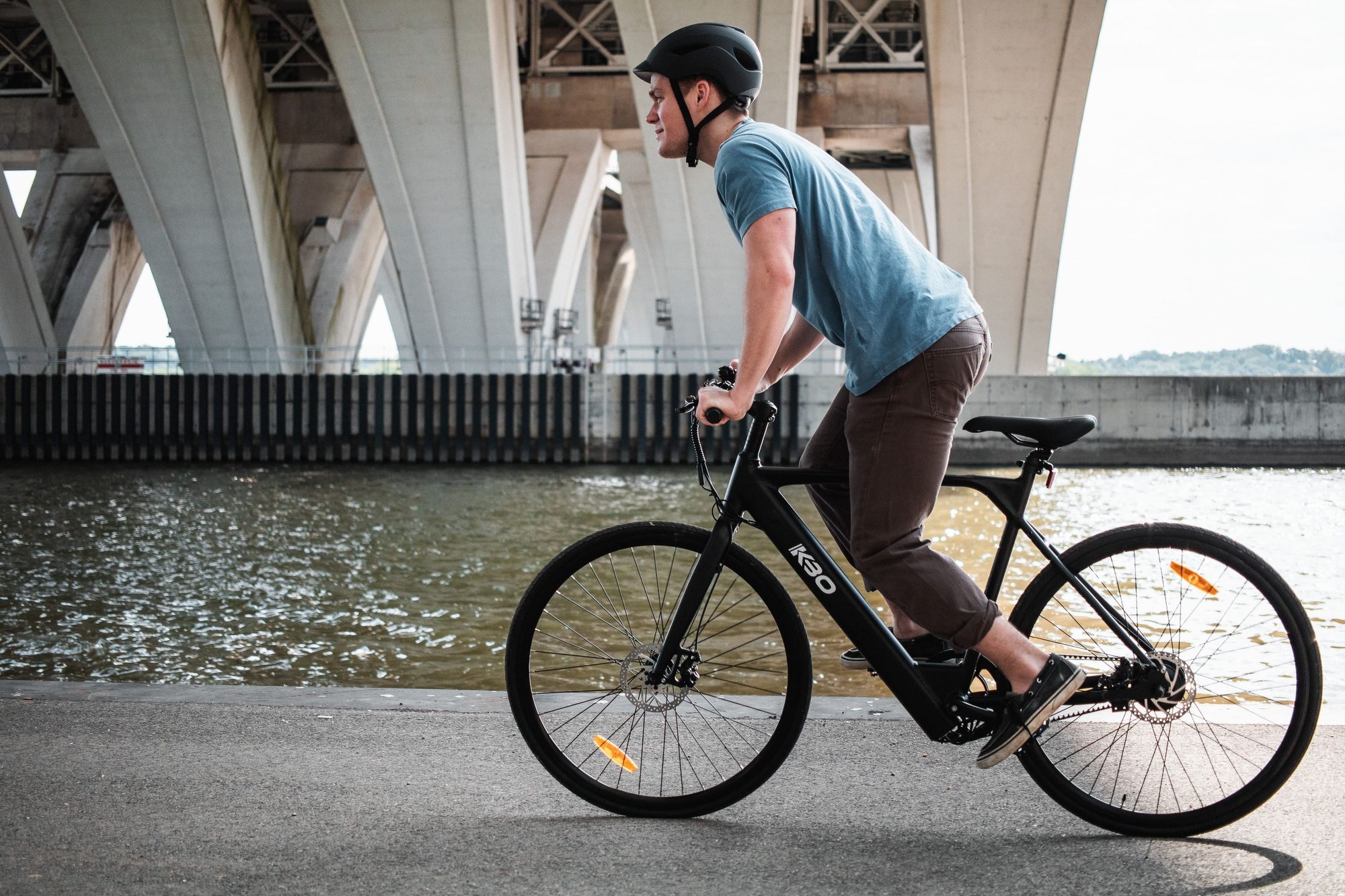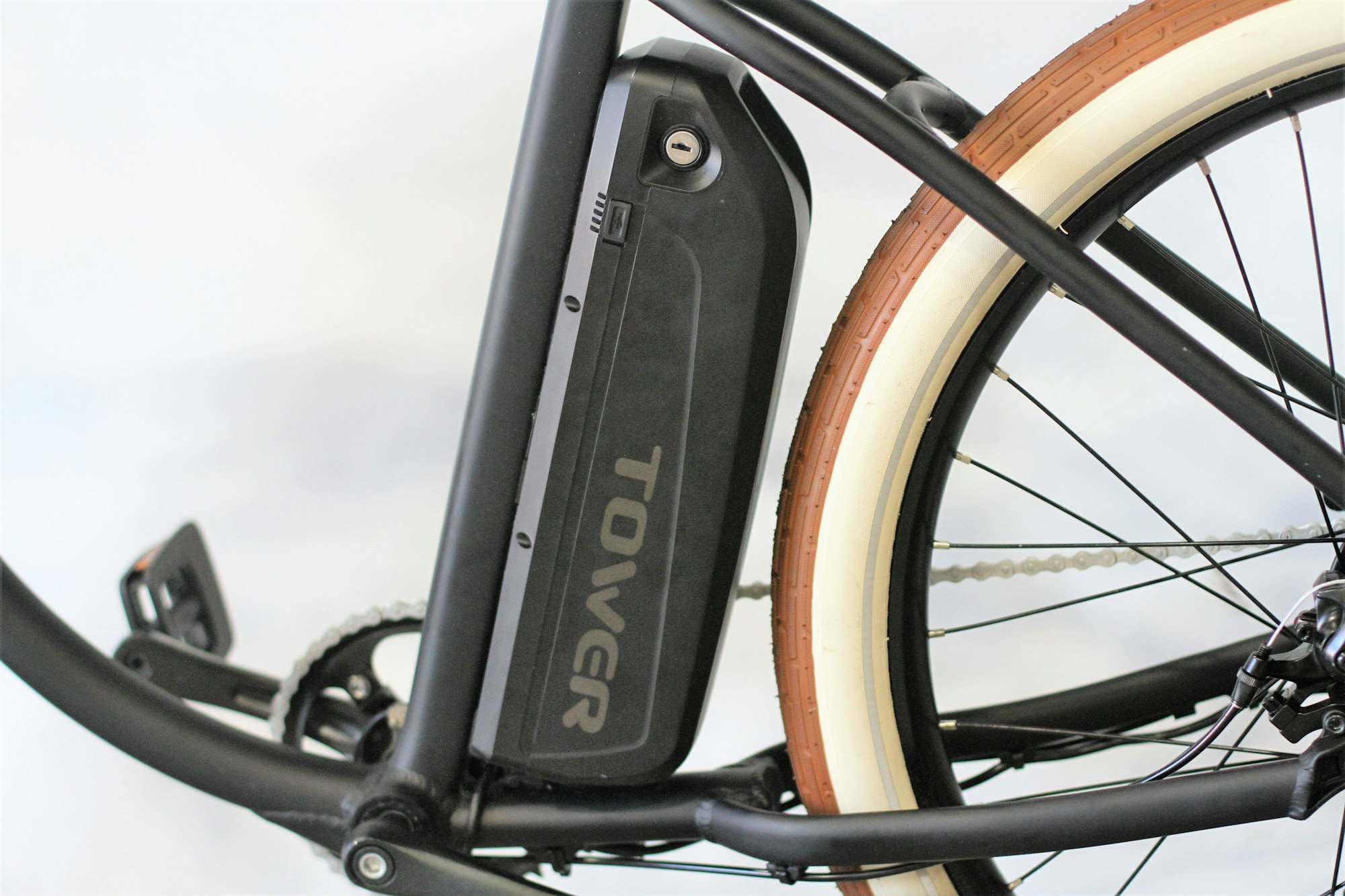As we grapple with climate change and look for sustainable alternatives in every aspect of our lives, electric bikes emerge as both a convenient and responsible choice.
Why e-bikes are more than just a trend
In this article, we've compiled a list of seven compelling reasons that make e-bikes a green choice, promote sustainable commuting, and contribute to a healthier planet.
Whether you're a seasoned cyclist or someone considering an e-bike for the first time, this article aims to shed light on how this mode of transportation is more than just a trend - it's a step toward a more sustainable future. Check out the cycle to work initiative for those interested in making their commute greener.
So, if you've ever wondered how to make a difference while making your daily commute or leisure rides more enjoyable, read on. We're diving deep into the environmental benefits that make e-bikes a win-win for you and the planet.
The 7 eco-friendly benefits of riding an e-bike
Zero emissions
Unlike other powered forms of transportation, e-bikes don't require petrol or diesel to run. That means no carbon emissions are released, and they're powered instead by human pedalling and electric energy propelling the bike forward.
If you opted to charge the battery with clean and green solar power, then every use of an e-bike would be 100% environmentally friendly. If that wasn't enough, a passenger vehicle produces six metric tons of carbon dioxide yearly, whereas an e-bike uses none.
Long-lasting batteries
Even if you can't find a way to power your e-bike with solar energy, the long-lasting batteries mean you'll be kinder to the environment. Batteries can last anywhere from a few hours to several days, giving you plenty of juice and the sockets a well-earned rest.
E-bikes can usually be charged overnight, meaning their environmental impact is lower as nighttime charging happens during off-peak hours for power grid usage. The money spent on electricity when charging an e-bike is much smaller than monthly car fuel expenses, making them eco-friendly and cheaper.
Less waste to worry about
Another plus point with e-bike batteries is their durability. They don't need fossil fuels and produce minimal waste as a result. The accumulator's long-lasting life, ease of use, and renewable energies like solar and wind power mean any waste is entirely minimised.
Some accumulator parts may also be recyclable when the battery eventually needs replacing. According to this study published in PDF format, the impact of recyclable parts on the environment is positive, again showing the benefits of riding an e-bike.
Don't contribute to environmental pollution
An e-bike doesn't release any toxic gases or smog into the environment. It means they don't contribute to air pollution, reducing the chance of respiratory and other health problems – great for urban settings.
There's also minimal sound from an e-bike, which reduces noise pollution and is friendlier to nearby pedestrians. E-bikes are much closer to the environment and cause less road disruption.
Less damage to roads
E-bikes offer more power than regular bikes but are still friendly to the roads. This is opposed to vehicles like cars and motorbikes, which are much heavier and can cause damage to roads when overused.
Damaged roads need repairing and usually require even heavier vehicles like trucks to relay the road and fill potholes. This causes even more environmental damage, as the vehicles must be driven to and from the repair site and are often left running throughout the work.
Sustainable energy
The world continues to look at ways to switch to sustainable options. With e-bikes, one of the answers is staring it right in the face: they can consume or operate on solar energy.
This makes them a sustainable option and a genuine alternative to other vehicles. University of Leeds Researchers found that e-bikes can cut car carbon dioxide emissions in England by up to 50%
As an increasing number of cars on the road are electric, it's not impossible to envisage a bright future where the vehicles driving around our cities and rural areas move away from petrol and diesel, leading to fewer emissions and cleaner air for everyone.
Eco-friendly travel
Riding an e-bike isn't just friendlier to the environment than cars and motorbikes. An electric cycle is as much as six times more efficient than a train, and there are no scheduling issues involved with train times when on a bike.
There's also a health benefit, which Covid-19 has only magnified. Trains, buses and other modes of transportation are busy with crowded conditions. On an e-bike, however, you don't have to mix with other passengers and are outside in the fresh air.
The benefits are even more pronounced for those who use e-bikes for work, such as couriers. Not only do you get to skip the traffic and reduce your carbon footprint, but you also have specialised courier insurance options to keep you covered on the job.
Common FAQs about the environmental impact of e-bikes
As e-bikes gain popularity for their convenience and efficiency, it's essential to consider how they align with sustainability goals. The following FAQs address common concerns and queries about electric bicycles' environmental benefits and considerations, helping you make an informed decision.
What's the carbon footprint of e-bikes vs. traditional bikes?
Traditional bikes generally have the edge regarding carbon footprint since they require only human power. However, e-bikes have a significantly lower carbon footprint than cars and other motorised vehicles.
The electricity used to charge an e-bike's battery can also be sourced from renewable energy, reducing its environmental impact. Electric bikes have a carbon footprint due to their electrical components and the energy used for charging. Still, it's minimal compared to most other forms of motorised transportation.
How does e-bike maintenance affect sustainability?
E-bike maintenance is generally less resource-intensive than cars, contributing to their lower environmental impact. The batteries used in e-bikes are often recyclable, reducing waste.
Regular maintenance practices like checking tire pressure and adjusting brakes ensure the e-bike operates efficiently, minimising its environmental impact.
However, like any electronic device, e-bikes have batteries that eventually need replacement. Opting for recyclable or sustainably sourced batteries can make a difference in the long-term sustainability of using an electric bike.
Additionally, securing your e-bike with sold-secure gold locks can ensure its longevity, reducing the need for replacements and contributing to sustainability.
Are e-bikes suitable for eco-friendly long-distance travel?
While e-bikes are primarily designed for shorter commutes and city travel, advancements in battery technology make them increasingly viable for longer distances.
Using an e-bike for long-distance travel can significantly reduce the number of cars on the road, lowering harmful emissions. Some adventurers even use e-bikes for bike-packing trips, effectively combining the thrill of adventure with environmental responsibility.
However, for very long distances, it's essential to consider the availability of charging stations and the environmental impact of the energy sources used for charging.
Conclusion: Electric bikes for a better future
Hopping on an e-bike is not only a great way to get around, but it's also eco-friendly. As the world shifts towards sustainability, e-bikes have already proven to be a viable, road-friendly, zero-emission vehicle that's proven its viability as a travel option.
But the impact goes beyond that. Choosing an e-bike contributes to a broader move towards sustainable living. As technology evolves, we can expect even greener features, making electric bicycles an increasingly compelling choice for the future.
If you're considering how to make a meaningful impact on the environment, e-bikes offer a practical and responsible solution. They're not just a trend but a lifestyle choice for a greener world.
Electric bike insurance
Get covered for theft, accidental damage, full battery cover, loss and more. Try our top-notch e-bike insurance. With no excess travel cover included, it's e-bike insurance and then some.






